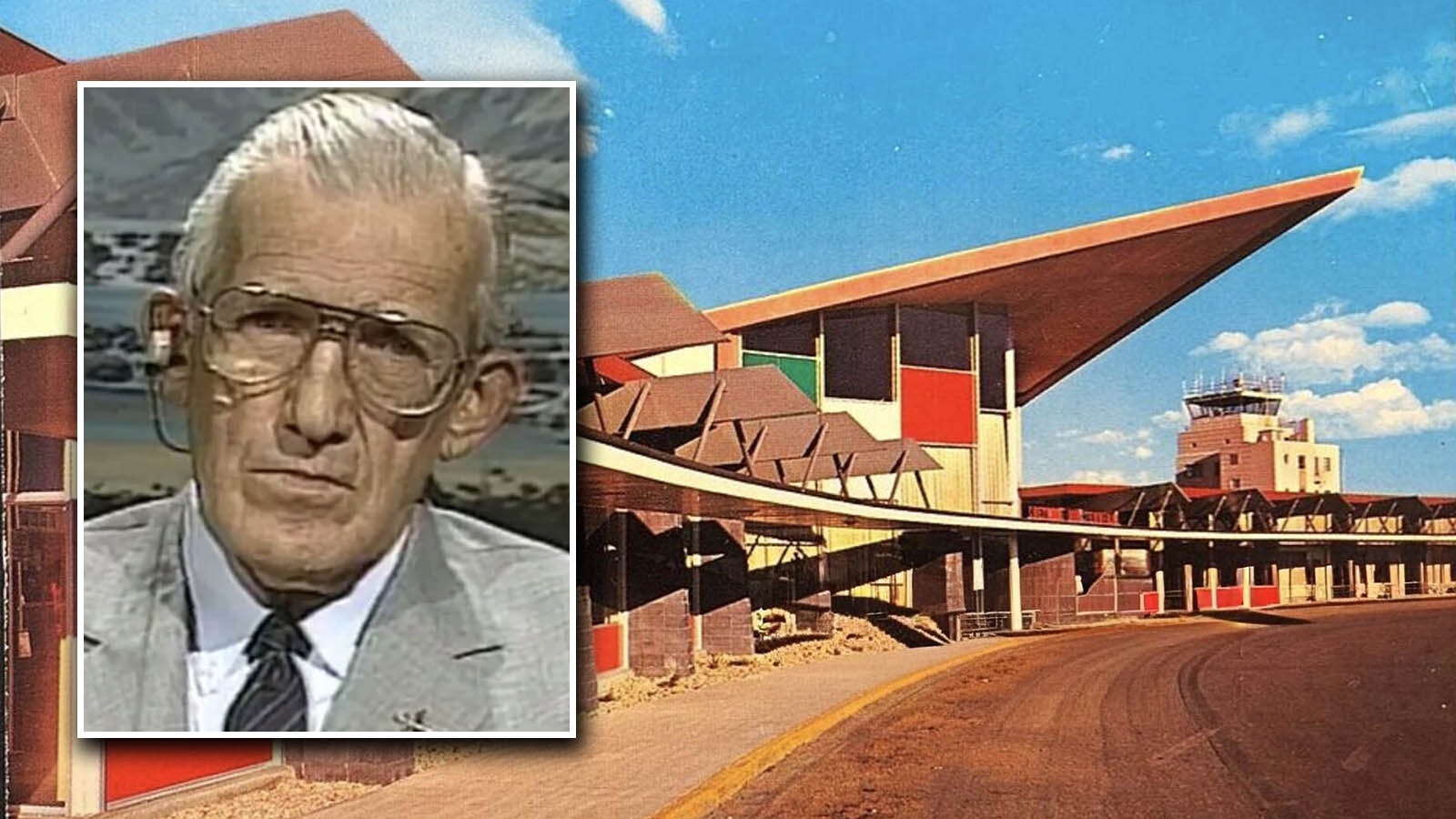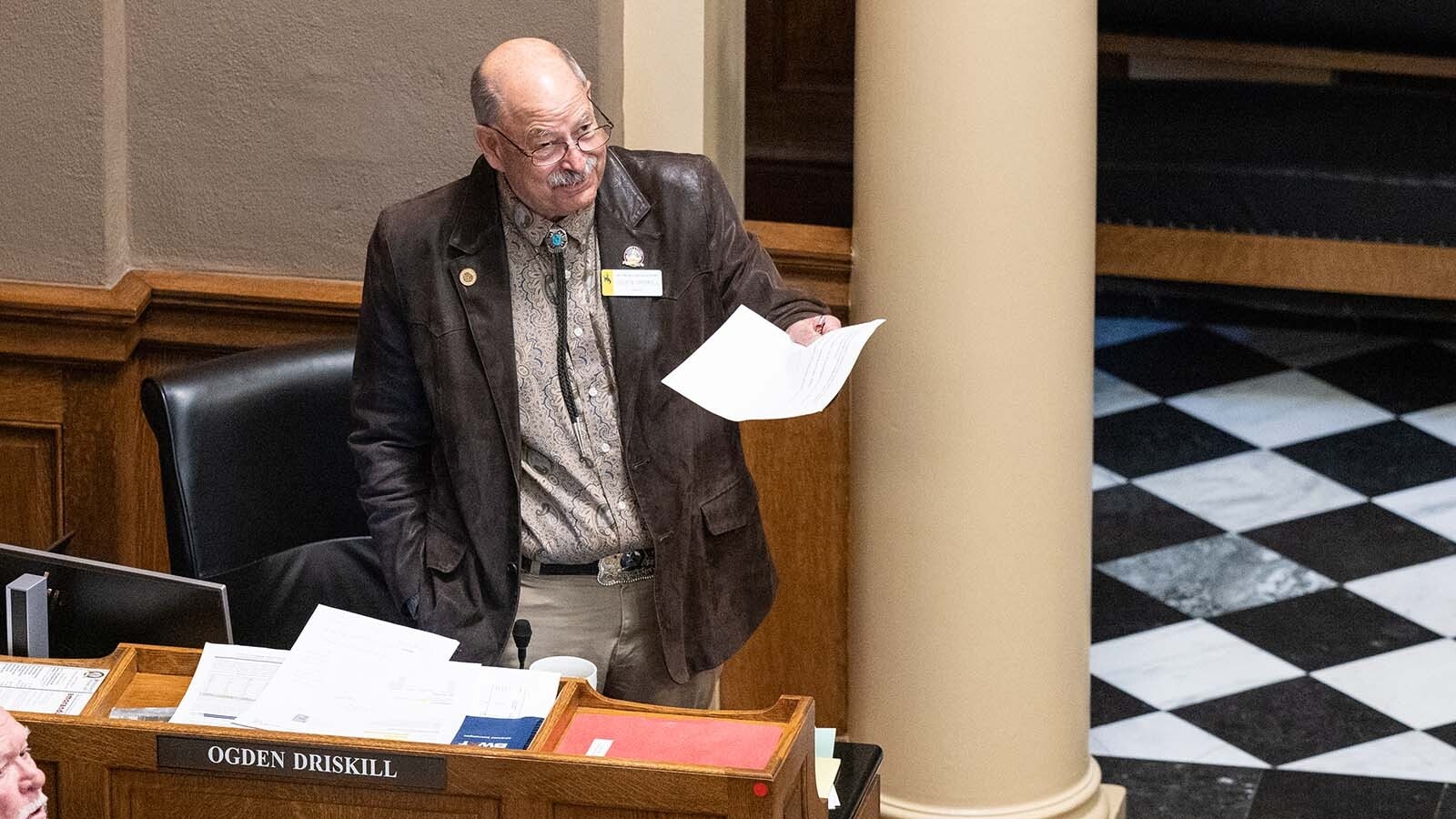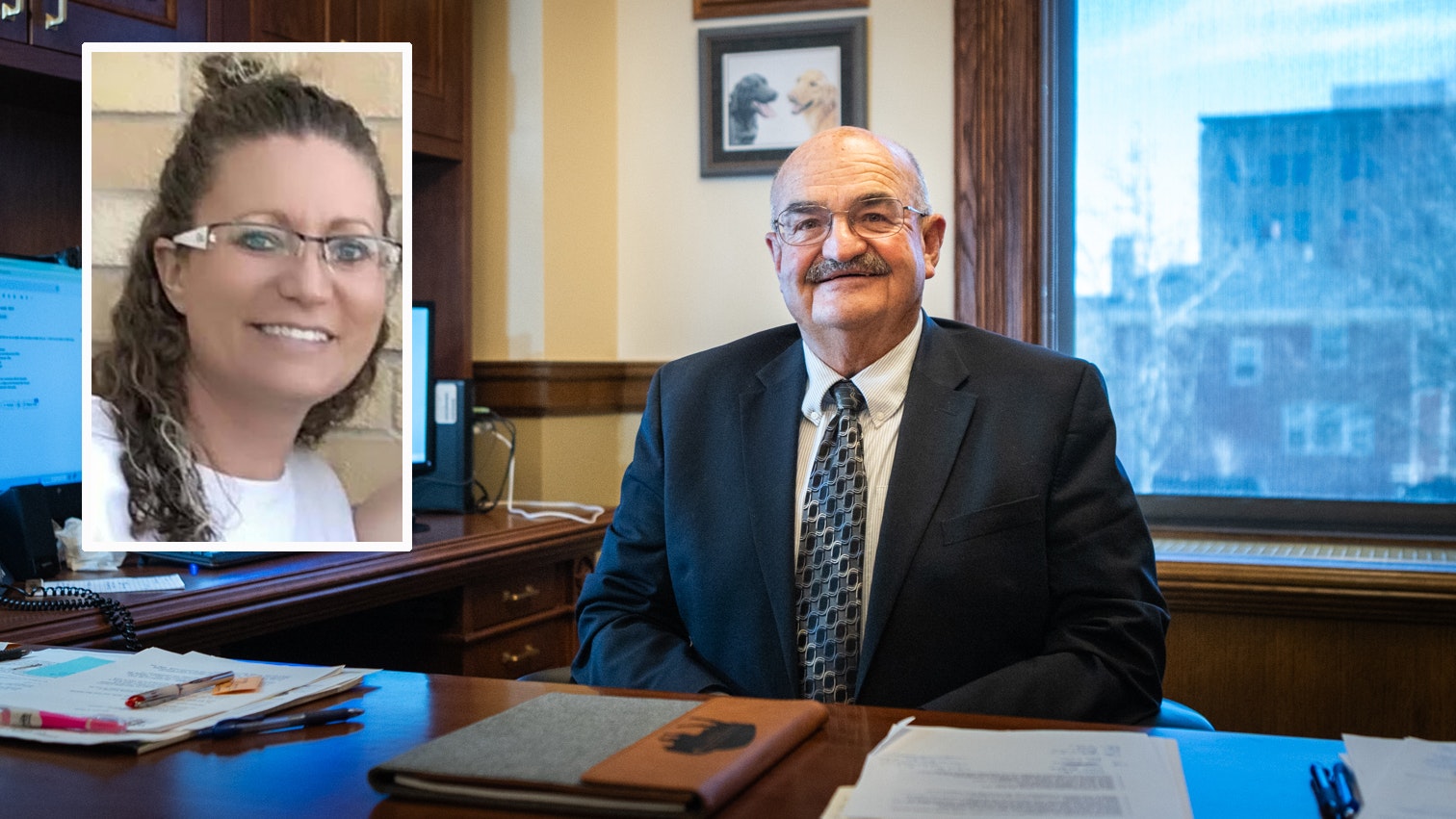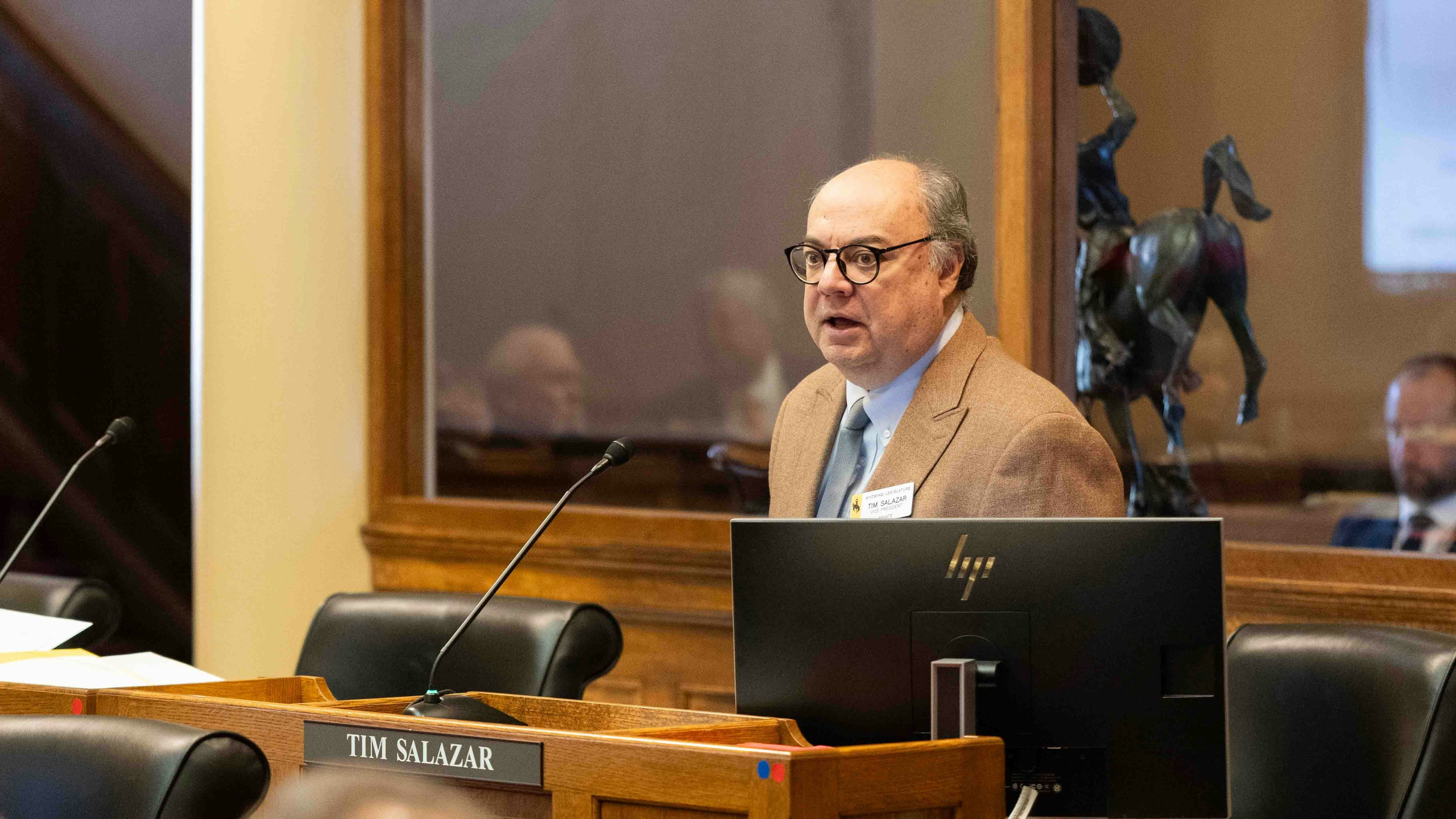A bill that would criminalize dropping off ballots on behalf of most other voters — not including family members and those under home or facility care — advanced Tuesday to Wyoming’s 2026 lawmaking session.
It did so after a few personality clashes in the legislative Corporations, Elections and Political Subdivisions Committee’s rushed, sometimes heated, final meeting of the interim.
The bill joins a total of 13 other election-integrity-oriented pieces of legislation also vying for the attention of the entire Legislature, whose primary constitutional duty this next session is to pass a state budget.
If it becomes law, the bill would ban people from delivering ballots to a city or county clerk on behalf of other voters, except when the deliverer is immediate family or a caretaker of the voter; or an employee at the caretaking facility where the voter lives.
The caretakers can’t bring more than five ballots on behalf of their clients, the bill also says. It would ban canvassing board members from certifying votes that exceed those restrictions.
And it would make violating that law a felony punishable by up to five years in prison and $10,000 in fines for anyone who “knowingly and willfully” breaks those policies.
Proponents say it’s needed to identify any mischief Wyoming may have missed for not having had a law addressing this issue prior, while opponents say the problems the bill’s proponents fear are already criminalized in Wyoming’s voter fraud statutes.
Eleven committee members voted to adopt the bill. Two — committee Co-Chair Sen. Cale Case, R-Lander, and Rep. Mike Yin, D-Jackson — voted against adoption.
Sen. Brian Boner, R-Douglas, was not present for the vote.
‘Well, That’s A Happy Note’
“The bill makes no sense,” Yin told the committee Tuesday while explaining his no vote. “Just transportation of a ballot shouldn’t be a crime. It’s not unethical for me to ask my friend to take a ballot to the clerk if I trust my friend to do that.”
Everything witnesses posed as the evils of ballot harvesting is already illegal
The committee and witnesses debated at length about what a clerk is to do if a nursing home employee submits more than five ballots on behalf of the residents.
Fremont County Clerk Julie Freese, speaking for the Wyoming Association of County Clerks, characterized the five-ballot cap as clunky.
If a person brings six ballots, “How do I pick five out of the six they just brought?” she asked. “Or do I have to reject them all? Do I send them back and say, ‘Try again’?”
Speaking of the bill altogether, Freese added, “I think we’ll be sued. And we will lose.”
“Well, that’s a happy note,” bantered Case.
Joey Correnti, speaking in his capacity as a member of the Carbon County canvassing board, said the bill has hyper-surveillance overtones and fails to back its mandates with authority and liability protections.
If he has a mere suspicion the deliverer is not related to the voter, reasoned Correnti, “what right do I have to actually prove it (and exclude someone’s vote)?”
This led the committee into a discussion about verifying digital signatures, which Rep. Steve Johnson, R-Cheyenne, called a “rabbit hole” but an intriguing topic for the future.
It reminded Correnti of DNA databases, which the state keeps for convicted felons.
“DNA (cataloguing), I’m terrified of. It’s a Fourth Amendment issue I don’t even want to get into,” he said.
That Murky Address …
Bryan Miller, Wyoming Republican Party chair, said the bill is a good start, though he’d like to see broader language.
“There are many cases nationwide where this is happening,” said Miller. “People come and say, ‘Well it’s just not happening here.’ But we don’t know. Because we’ve never had a law restricting it.”
In his home county of Sheridan, said Miller, he’s identified voters registered to an address known as a shell location for numerous businesses that are registered in the state of Wyoming.
He’s also identified voting activity out of an apartment complex for elderly people, who nevertheless aren’t registered to that complex’s address, said Miller.
Secretary of State Chuck Gray told the committee the bill is about preserving the chain of custody.
He rattled off numerous other states with similar legislation — not all of which were Republican-led, though many were. And he said Wyoming needs to get in alignment with other red states on this issue.
“We really need to get something on the books that has some teeth,” said Gray.
Point Of Order
Johnson resisted calls to expand the five-ballot cap for nursing home workers.
“I think that we have to worry, I would worry, about people incapable of casting a ballot vote because of their dementia,” said Johnson.
Case countered, saying the right to vote is “as important as a gun right” and that eligible voters can’t be excluded from that right except by a court order which, in the case of dementia, confirms their incompetence.
But, said Johnson, “if you have dementia, it would be easy for someone to say, ‘Hey, I’ll take that down there for you.’ We want to make sure they’re qualified and have an affidavit and are doing it for the right reasons – not to influence a vote one way or another.”
Yin invited League of Women Voters lobbyist Marguerite Herman to criticize Johnson's comments.
“Representative Johnson brought up that there are certain eligible voters he doesn’t think should be able to vote or should vote. Does the League of Women Voters have a position on that?” asked Yin.
Herman said the league advocates for every eligible voter to have maximum access to the process, and for Wyoming to maintain a level of security that’s already in place.
“Point of order, chairman,” Johnson said.
Growing elevated, Case curbed the discussion.
“Everybody’s stressed out. This is the last meeting. We’re short of time already,” said Case.
Johnson later asked Case to have Yin apologize to him.
Case did not, though he “noted” Johnson’s point.
Clair McFarland can be reached at clair@cowboystatedaily.com.






